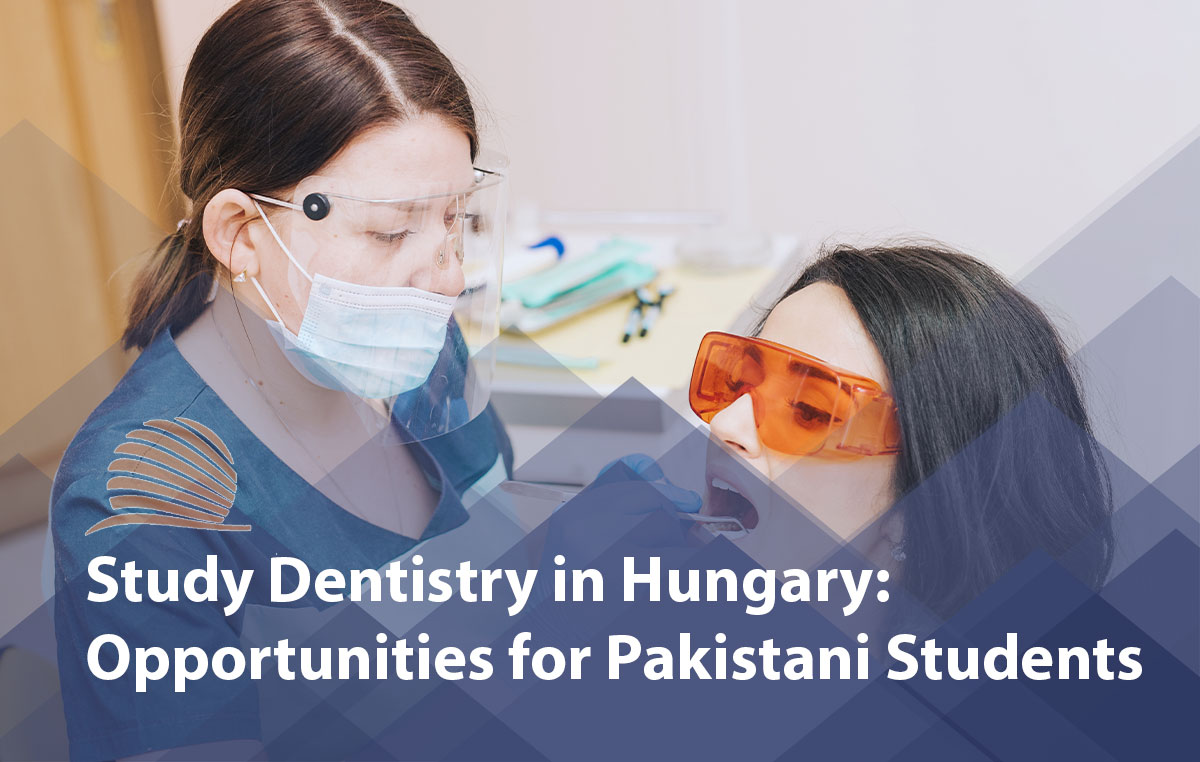Dentistry in Hungary

Study abroad expert advice
Don't waste time! just fill the form to get help.
Hungary is emerging as a preferred destination for Pakistani students seeking high-quality, affordable Dentistry (BDS/DDS) programs in Europe. With excellent clinical training, modern facilities, and degrees recognized across the EU, Hungary offers a compelling pathway in dental education.
Why Study in Hungary
- European recognition & PMDC/WHO recognition: Hungarian dental degrees are recognized within the EU and accepted globally, making them eligible for the Pakistan Medical Commission’s licensing.
- Affordable tuition & living cost: Compared to Western Europe, Hungarian dental programs cost significantly less while maintaining top standards.
- English‑medium programs: Several universities offer dentistry in English to accommodate international students.
- Modern clinical exposure: Students gain hands‑on experience in dental clinics, simulation labs, and affiliated hospitals early in the curriculum.
- Cultural & student life: Hungary has a vibrant international community with supportive services for Pakistani students.
Top Universities
| University | Duration | Tuition per Year (approx.) | Language | Highlights |
| Semmelweis University, Budapest | 5 years | €12,000‑14,000 | English | Top medical research; affiliated teaching hospitals |
| University of Szeged – Faculty of Dentistry | 5 years | €11,000‑13,000 | English | Strong clinical curriculum and labs |
| University of Debrecen – Faculty of Dentistry | 5 years | €10,500‑12,500 | English | Modern facilities, growing international student body |
(Please check each university’s official site for exact fees and entry intake dates.)
Admission Requirements & Process
- Academic credentials: Minimum 60% in FSc pre‑medical / A‑levels with Biology, Chemistry, Physics, English.
- Standardized tests: Most Hungarian programs do not require IELTS/TOEFL or entrance exams.
- Age: Typically under 25 years.
- Interview/application: Submit scanned copies of transcripts, passport bio‑page, photos, health certificate and financial proof. Some institutions conduct online interviews.
- Acceptance & enrollment: On receiving an admission letter and acceptance fee invoice, students pay tuition and apply for a D‑type student visa.
Estimated Expense
- Tuition: €10,500–14,000 per year.
- Accommodation: €2,500–4,000 per academic year (shared dorm or private apartment).
- Living expenses: €3,000–4,500 annually (food, transport, books, insurance).
- Visa plus residence permit: €80–100.
- Total Annual Estimate: €16,000–20,000 (~PKR 5.5–7 million depending on exchange).
(These are ballpark figures—always check up-to-date cost estimates.)
Visa Requirements
Pakistani students must apply for a D‑type national student visa:
- Admission letter and proof of enrollment
- Passport valid at least 6 months beyond arrival
- Proof of financial means (blocked account or sponsor affidavit)
- Medical insurance covering Hungary
- Recent passport‑size photos, filled visa form
- Health certificate (tuberculosis test, etc.)
Upon arrival, apply for Hungarian residence permit within 30 days using your university’s help.
Scholarships for Pakistani Students
- Hungarian Government Stipendium Hungaricum: Full scholarships covering tuition, accommodation, stipend, and insurance for top-performing international applicants.
- University‑level scholarships: Merit-based partial waivers at institutions like Semmelweis or Szeged.
- EU‑funded programs/ERASMUS: Possible exchange or mobility grants for clinical electives.
- External scholarships: Pakistani education trusts or foreign student loans may assist.
FAQs
Is Hungarian DDS/BDS accepted by PMDC/NLE Pakistan?
Yes—degrees from accredited Hungarian dental schools are accepted by PMDC, allowing graduates to sit for Pakistan’s NLE and register as dentists.
Do I need IELTS/TOEFL or MDCAT?
Most Hungarian dental programs do not require IELTS/TOEFL or MDCAT. Admission is based on academic transcripts and interview if required.
What about language barriers during the program?
Programs taught in English exist; however, clinical training may require basic Hungarian. Universities often offer preparatory Hungarian language classes.
Can I work part-time while studying?
Yes, student visa holders can work up to 24 hours/week during semesters and full-time during holidays.
What after graduation?
You can pursue licensing in Pakistan (via NLE), continue postgraduate specialization within EU, or even apply for residency/PR in EU countries.
When to apply?
Applications usually open from December to June for September/October intake.

 Scholarships 2026 – Fully Funded Oxford Degrees (5).jpg)
 Scholarships 2026 – Fully Funded Oxford Degrees (4).jpg)
 Scholarships 2026 – Fully Funded Oxford Degrees (3).jpg)
 Scholarships 2026 – Fully Funded Oxford Degrees (2).jpg)